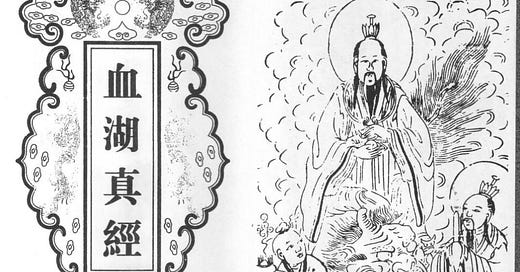The great Dao Through the Lens of Modern Science
In the heart of ancient Chinese philosophy lies the Dao, a concept so profound and all-encompassing that Lao Tzu himself declared, "The Dao that can be told is not the eternal Dao." This statement, emblematic of the ineffable nature of the Dao, resonates strikingly with the mysteries uncovered in the realm of quantum mechanics, where reality defies conventional understanding, and where Richard Feynman famously remarked, "If you think you understand quantum mechanics, you don't understand quantum mechanics." This article embarks on an exploratory journey, weaving together the timeless wisdom of the Dao with the cutting-edge insights of modern science, to uncover a richer, more holistic understanding of reality.
The Ineffability of the Dao and Quantum Mechanics
At the core of Daoist philosophy is the principle of ineffability—the idea that the true essence of the Dao is beyond words and conceptualization. This mirrors the quantum world, where particles exist in states of superposition and entanglement, challenging our linear, deterministic views of reality. Both realms suggest that the fundamental nature of existence transcends our conventional modes of understanding, inviting us to embrace the mystery and uncertainty at the heart of the universe.
Wu Wei: Effortless Action and Scientific Inquiry
Wu Wei, or effortless action, is a central Daoist concept advocating for actions that are in harmony with the flow of life. In scientific research, this principle can inspire an approach that respects the natural order of things, allowing discoveries to unfold in their own time, rather than forcing outcomes. It encourages a humility before nature, recognizing that the universe operates according to its own rhythms and logic.
Naturalness, Humility, and Simplicity
Daoism places great value on naturalness (ziran), humility, and simplicity, principles that can offer a refreshing perspective in today's complex, technology-driven world. In science, these values remind us of the importance of approaching research with an open mind and a respect for the inherent complexity of natural systems, advocating for solutions that work with, rather than against, the natural world.
Yin and Yang: The Interconnectedness of All Things
The concept of yin and yang highlights the interconnectedness and interdependence of seemingly opposite forces. This principle finds a parallel in ecological studies and systems theory, which emphasize the interconnectedness of all elements within a system. Recognizing this interconnectedness can lead to more sustainable approaches to living and technology, reflecting a holistic understanding of the world that is both ancient and urgently relevant.
Non-Duality and Holism
Non-duality, a key aspect of Daoist thought, challenges the binary distinctions we often make between self and other, observer and observed. In science, this is echoed in the field of quantum mechanics, where the act of observation can alter the state of what is being observed, blurring the lines between subject and object. This suggests a more integrated, holistic approach to understanding reality, where the separation between humanity and nature, science and spirituality, is seen as an illusion.
Beyond Language: Intuition and Direct Experience
Daoism values direct experience and intuition over conceptual knowledge, a stance that can offer valuable insights into scientific exploration. It invites scientists and thinkers to rely not only on empirical data but also on intuition and a deep, experiential engagement with their subject matter, opening up new avenues for discovery and understanding.
A Broader Conception of Reality
The Dao encourages us to see beyond the material, measurable aspects of the universe, to appreciate the beauty, mystery, and interconnectedness of all things. This perspective can inspire a broader conception of reality in science, one that includes the subjective, qualitative dimensions of human experience and the natural world.
Sustainability and Harmony with Nature
Finally, the Daoist emphasis on living in harmony with nature offers a vital principle for addressing the environmental challenges of our time. It calls for a sustainable approach to development, one that respects the balance and limits of the natural world, and seeks to maintain harmony within the vast web of life.
In weaving together the principles of the Dao with the insights of modern science, we find a rich tapestry of wisdom that transcends time and disciplinary boundaries. This exploration invites us to look beyond the surface, to question our assumptions, and to open ourselves to a more integrated, holistic understanding of the universe and our place within it. As we stand at the intersection of ancient wisdom and scientific inquiry, we are reminded that the journey to understanding is endless, and that the greatest wisdom lies in embracing the mystery that surrounds us.





